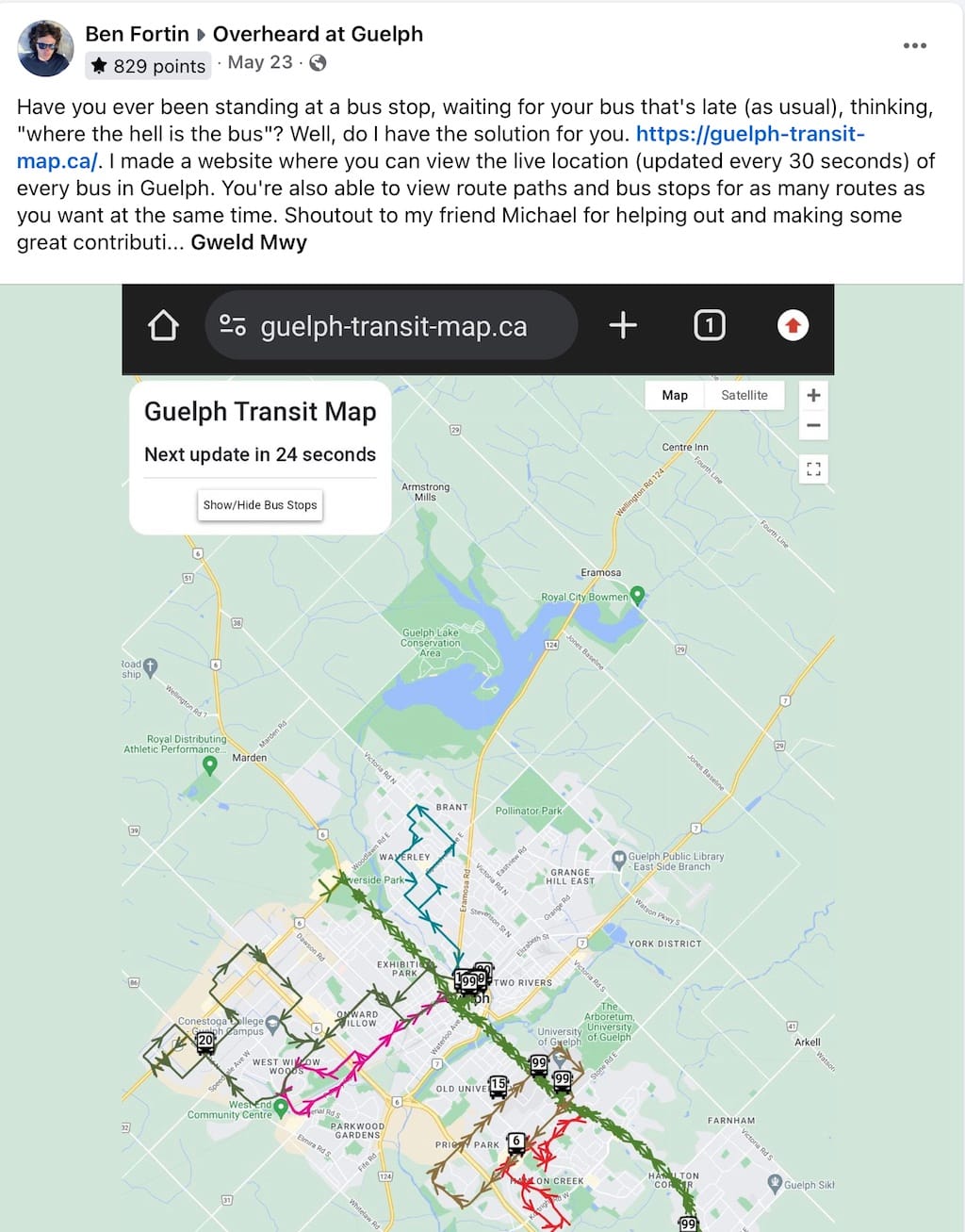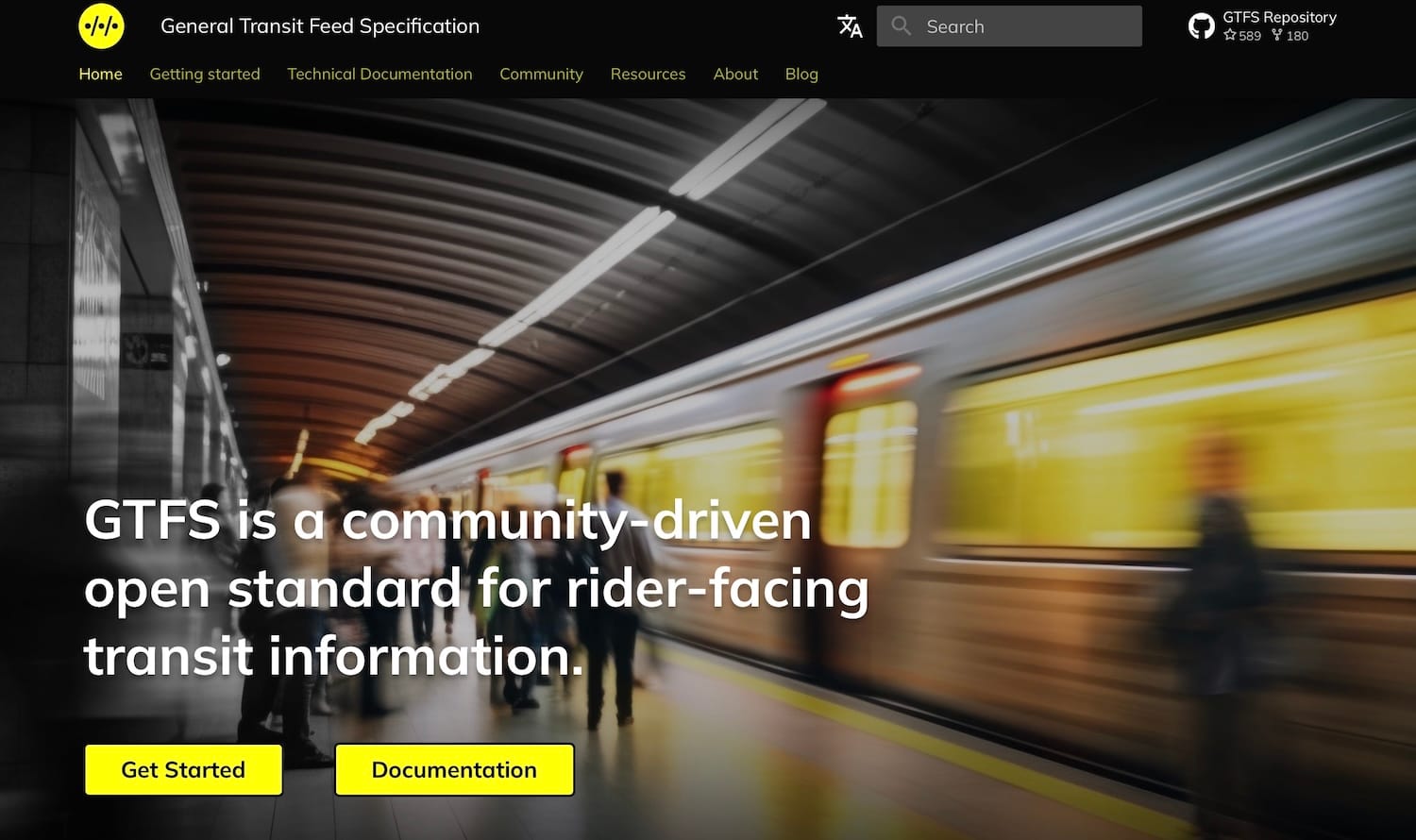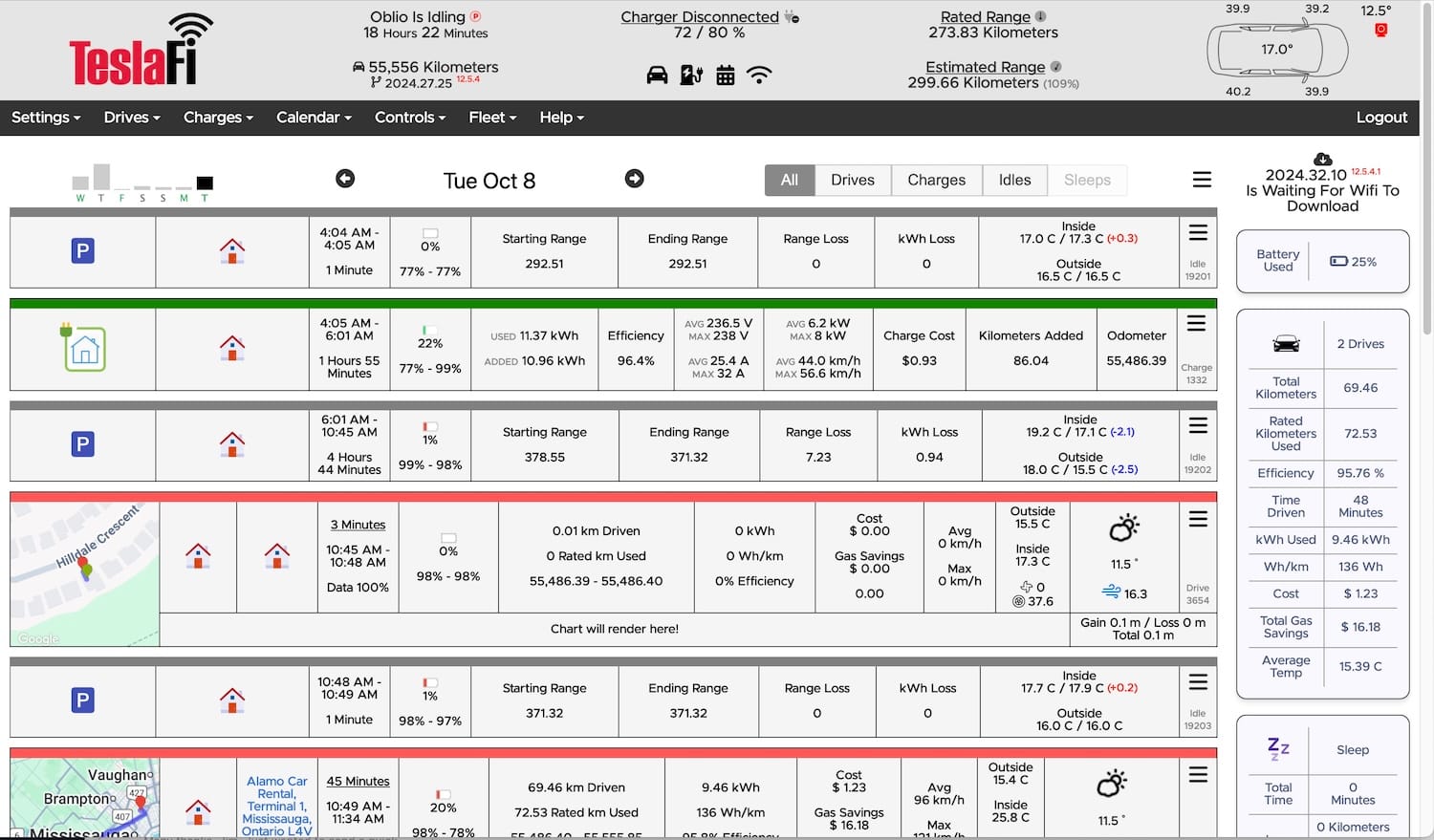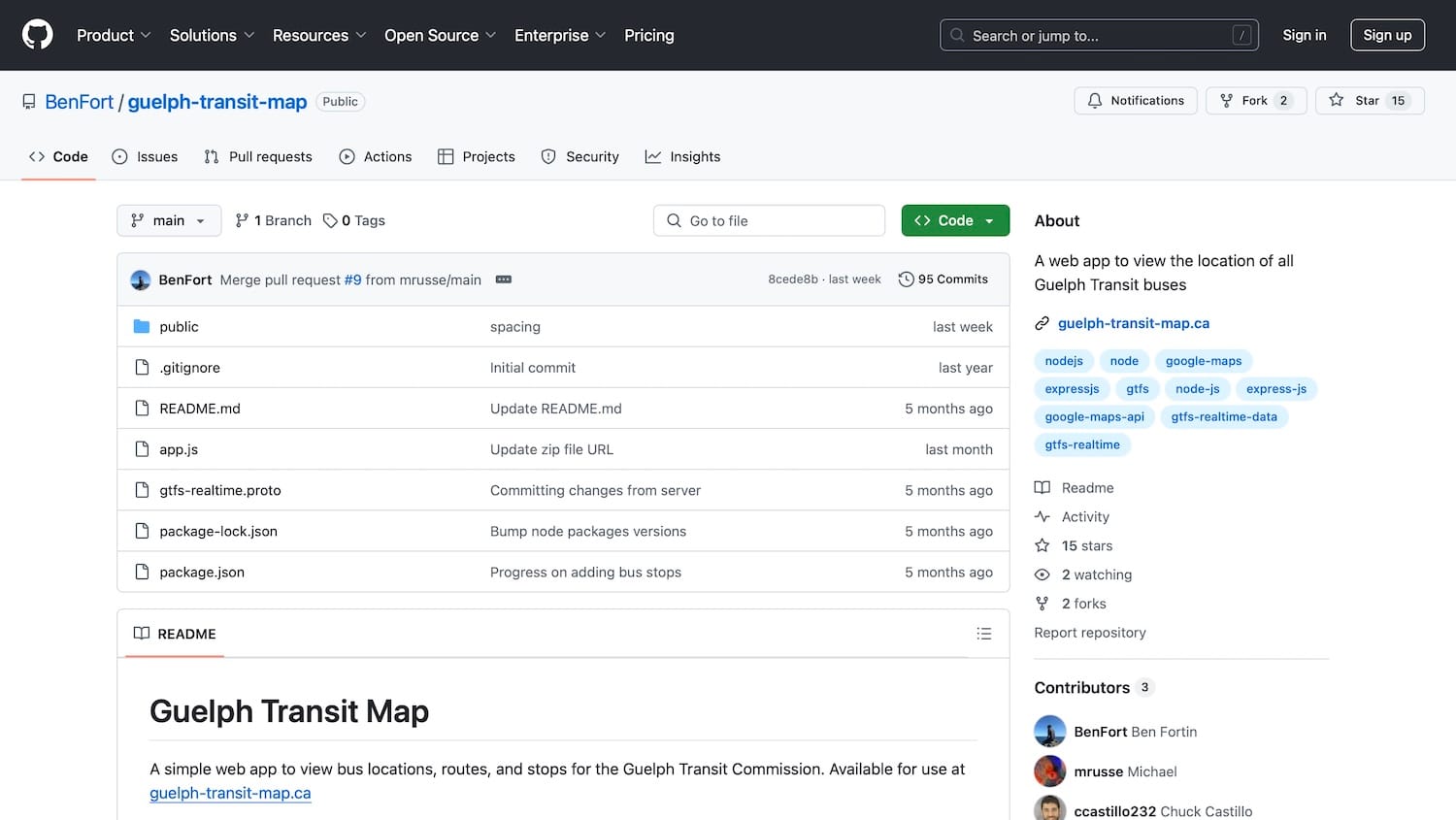"Innovation? Fix things faster!" - Futurist Jim Carroll
One of the most unappreciated trends of our time but one that has the potential for the most benefit involves what are known as 'application program interfaces,' or API's. Combine that with 'open source software' and 'open source data', with a collaborative culture, and you've got an opportunity for magic. Magic that can involve fast innovation - a fact that seems to delude many major organizations.
With that thought in mind, let me introduce you to a fellow named Ben Fortin. He's a young fellow, in the city in which I live - Guelph, Ontario, Canada. Being of a generation that combines tech-savvy skills with a desire to 'fix things fast,' his story demonstrates what is possible in today's world.
Imagine this. He's sitting around, waiting for a bus, not knowing when it is going to show up, and decides at that moment that he should write a program that will help everyone waiting for a bus in the city to know when one is going to arrive.
I discovered this fact one day when I signed into Facebook and my feed popped up with this post.

Here's what Ben wrote that day:
I was tired of standing at a bus stop and wondering where my bus was, as buses in Guelph are often running late. I discovered that Guelph provides access to real time GTFS (General Transit Feed Specification) data through their open data portal. Knowing this, and with an interest in doing fun things with publicly available data, I set out to display the locations of all the buses on a simple map. I later added the ability to view a bus' route outline. My friend Michael took an interest and made several great improvements to the app including displaying all the UI controls on the map element itself, the ability to view multiple routes at once, and the ability to view a route's stops.
Want to see it in action? Visit https://guelph-transit-map.ca. All that data is in real-time. At this very moment.
So if you had to catch a bus in Guelph right now, you'd know where it is.
Guelph? Where's that? It's my hometown! Despite serving clients worldwide - you know, organizations like NASA, the World Bank, and Disney - I mark this delightful community as my home base. (I do have an odd job; in just a few weeks I'll travel over to Abu Dhabi where I will keynote a major government conference about future trends, and I might end up talking about this bus project!)
My job is to deliver insight to global leaders and information on key trends that might provide them with innovation pathways into tomorrow, so I study a lot of things, do a lot of research, and watch carefully. One of the things I know about the future is that often, one of the best ways to understand future trends is simply to observe the world around you - such as by reading a local Facebook group.
So what's the back story here? I reached out to Ben - he's a young fellow, 24, with a recent degree from the university of the same name in town. And, the fact is, like many of his generation, he knows how to code, and how to quickly provide solutions to what seem to be intractable problems. Not only that but like millions of others, he is of a mindset to share his solutions with others who might want to implement those solutions with very little effort.
Such as knowing when a bus is going to show up.
Let me explain what he did. There is a standard - as there are for many different types of systems - by which buses in the Guelph fleet are throwing scads of information every second, particularly having to do with their location. That's the GTFS (General Transit Feed Specification) bit he shares in his story - you can learn more about that at https://gtfs.org.

My Tesla does the same thing - it is tossing out gigabytes of data every day, much of which is linked to the Tesla app that I use for access to the car. That same data is also accessed by other software services - I use one called TeslaFi, which provides me with ridiculous amounts of information about my car.

The data in both cases is accessible via what is known as an API - or Application Programming Interface. In essence, it's a series of rules by which people can register to access this information made available by a system and develop tools or insight with that data. (Yes, the owner of the data has to make a decision to make data available, and to who it will make it available to.)
So what Ben did was use his coding skills - with his buddy Michael - to write some code to access the data through the API, layer a nifty little map on top of it - and wham, you've got a real-time bus information update system. He then made the code available through a software repository known as GitHub, so that anyone who might want to prepare a similar real-time system for their community could easily prepare one - if their transit system also participated in the GTFS (General Transit Feed Specification) to share their data.

Here's the thing - this real-time app wasn't developed by Guelph Transit - but by a student who simply got tired of not knowing where the bus was.
And suddenly, just because a guy was waiting for a bus, an innovative little solution to a unique problem was built. This explanation is an oversimplification of what is a massive global trend - open data, APIs, and shared programming code.
Suffice it to say, there are hundreds of thousands, if not millions, of community, local, regional, and national projects like this all involving those same three pillars - and if an organization or leadership team is not aware of this trend, they should be, for it provides one of the fastest routes to innovation available today.
Because in this new world of open data, APIs, and collaborative sharing, innovation can happen faster than you think!
Today, Ben is no longer a student but is working full-time for Camis, a Guelph-based organization that offers reservations and facilities management solutions for government-operated parks, campgrounds, marinas, and harbors.

